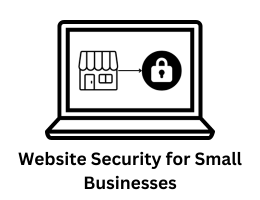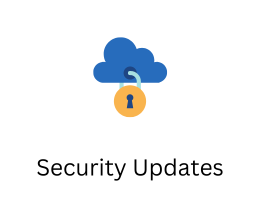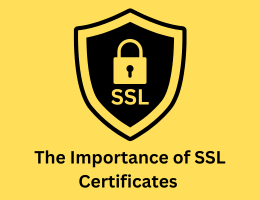
Why You Need a Website Security Plan?
- By admin --
- Monday, 25 Mar, 2024
In today's digital age, where websites serve as the storefronts for countless businesses and organizations, the importance of robust website security cannot be overstated. With cyber threats evolving and becoming more sophisticated, implementing a comprehensive website security plan is not just a good idea—it's essential for safeguarding your digital assets, protecting sensitive information, and maintaining trust with your users. In this article, we'll delve into the reasons why having a website security plan is crucial, covering the risks of neglecting security, the benefits of proactive measures, and key elements of an effective security strategy.
Understanding the Risks
The internet has opened up vast opportunities for businesses to reach global audiences and streamline operations. However, it has also introduced a range of cybersecurity threats that can wreak havoc on unprotected websites. These threats include:
-
Malware and Viruses: Malicious software can infect websites, compromising user data, damaging files, and disrupting operations.
-
Data Breaches: Hackers may exploit vulnerabilities in websites to steal sensitive information such as customer credentials, payment details, and personal data, leading to severe financial and reputational damage.
-
DDoS Attacks: Distributed Denial of Service (DDoS) attacks can overwhelm a website's servers with a flood of traffic, causing it to become inaccessible to legitimate users.
-
Phishing Scams: Cybercriminals may create fraudulent websites or emails that mimic legitimate ones, tricking users into revealing confidential information or installing malware.
-
SEO Spam: Hackers may inject spammy content or links into websites to manipulate search engine rankings, damaging the site's reputation and visibility.
Benefits of a Website Security Plan
Implementing a proactive website security plan offers numerous benefits for businesses and website owners:
-
Protecting Brand Reputation: A secure website instills trust and confidence in users, safeguarding your brand's reputation and credibility.
-
Maintaining Customer Trust: By safeguarding sensitive customer data, you demonstrate your commitment to protecting their privacy and security, fostering long-term relationships with your audience.
-
Avoiding Legal Consequences: Data breaches and security incidents can result in legal liabilities, fines, and regulatory penalties. A robust security plan helps mitigate these risks and ensures compliance with data protection regulations.
-
Preventing Downtime: Website security measures help prevent disruptions caused by cyberattacks, ensuring uninterrupted access to your site for customers and stakeholders.
-
Enhancing SEO Performance: By mitigating the risks of SEO spam and other malicious activities, you can improve your website's search engine ranking and visibility.
Elements of an Effective Security Plan
A comprehensive website security plan should encompass the following key elements:
-
Regular Software Updates: Keeping all software components—including content management systems (CMS), plugins, themes, and server software—up to date is essential for patching vulnerabilities and strengthening defenses against potential exploits.
-
Firewall Protection: Implementing a robust firewall solution helps monitor and filter incoming and outgoing traffic, blocking malicious requests and preventing unauthorized access to your website.
-
SSL Encryption: Secure Socket Layer (SSL) encryption encrypts data transmitted between a user's browser and your website, protecting sensitive information such as login credentials, payment details, and personal data from interception by third parties.
-
Strong Authentication Measures: Enforcing strong password policies, implementing multi-factor authentication (MFA), and limiting access privileges help prevent unauthorized access to administrative panels and sensitive areas of your website.
-
Regular Backups: Regularly backing up your website's files and databases ensures that you can quickly restore functionality in the event of a security incident or data loss.
-
Security Monitoring and Incident Response: Continuous monitoring of website activity and implementing an incident response plan enables you to detect security threats promptly and take appropriate action to mitigate risks and minimize damage.
-
Employee Training and Awareness: Educating employees about security best practices, phishing awareness, and the importance of maintaining vigilance can help prevent human errors that may compromise website security.
-
Third-party Security Audits: Conducting periodic security audits by reputable third-party providers helps identify vulnerabilities and weaknesses in your website's infrastructure, enabling you to address them proactively.
Conclusion
In conclusion, prioritizing website security is essential for safeguarding your digital assets, protecting sensitive information, and maintaining trust with your users. Neglecting security exposes your website to a wide range of cyber threats that can have devastating consequences for your business or organization. By implementing a comprehensive website security plan that includes regular updates, firewall protection, encryption, strong authentication measures, backups, monitoring, employee training, and third-party audits, you can mitigate risks, prevent security incidents, and ensure the long-term success and resilience of your online presence. Remember, when it comes to website security, proactive measures are always preferable to reactive responses.





